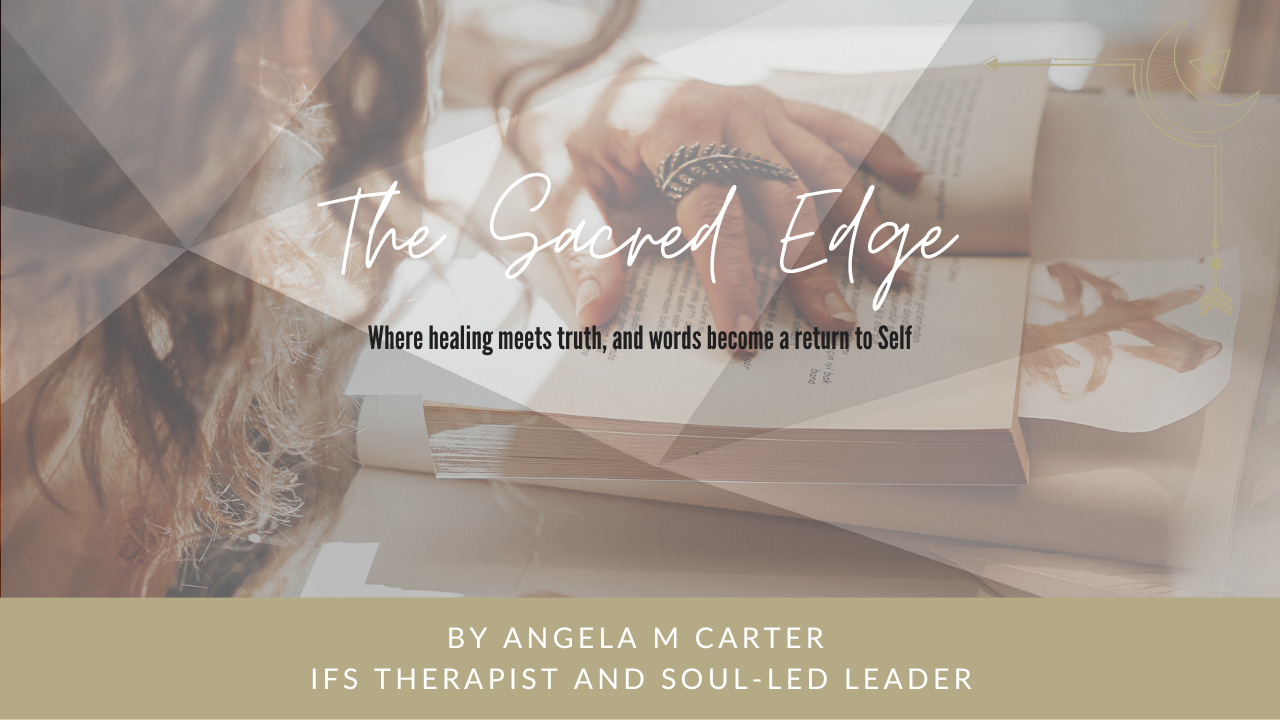
Understanding the Paradox of Healing After Trauma
Healing is rarely a straight path. Sometimes it feels like walking toward the light only to flinch when it touches your skin.
You may notice that when things finally become calm, you grow restless. When someone offers you care, you shrink away. When life feels peaceful, you wait for something to go wrong.
It can be confusing to realise that what you longed for, love, safety, peace, can feel deeply uncomfortable when it finally arrives.
This is the paradox of trauma healing.
The Body Learns Before the Mind Understands
Trauma is not just what happened to you. It is what continues to live inside your body when you were left alone with what happened.
When your nervous system has spent years bracing for danger, it learns to equate vigilance with safety. Your body believes that being alert, anxious, and prepared will protect you.
So when life becomes quiet, your body searches for the threat it assumes must still be there. Calmness can feel foreign. Stillness can feel unsafe.
Your body is not betraying you, it is protecting you the only way it knows how.
Why Healing Feels So Strange
Dr Stephen Porges, founder of Polyvagal Theory, describes how our autonomic nervous system constantly scans for cues of safety or threat. For those who have experienced complex trauma, the system becomes overly sensitive, often misinterpreting neutral experiences as dangerous.
Even positive emotions, love, rest, trust, can activate old alarm systems.
Internal Family Systems therapy teaches us that parts of you learned to survive by keeping you alert. These protective parts do not yet know that you are safe. They fear that if they relax, something terrible will happen.
Healing is not about forcing them to change. It is about helping them feel safe enough to rest.
Sofia’s Story, When Love Felt Dangerous
Sofia had always wanted connection. Yet every time someone tried to get close, she withdrew. She would sabotage relationships, retreat into isolation, or overwork until she was too exhausted to feel.
In therapy, she discovered a young part of her that had learned early on that love was unpredictable. Love could mean comfort one day and rejection the next.
When her therapist invited her to notice that part with curiosity instead of judgement, she felt a wave of tenderness.
Through IFS and gentle somatic work, Sofia began to reassure the part that it did not need to be on guard all the time. She learned to introduce calm in small, manageable doses.
Peace, she realised, is not the absence of movement, it is the soft rhythm of safety slowly returning.
Learning to Trust Safety Again
Healing the paradox begins by meeting your body with compassion.
Notice your protectors. When anxiety rises in moments of calm, pause and acknowledge the part that fears peace. It is not wrong, it is trying to keep you safe.
Build tolerance slowly. Do not rush safety. Spend a few moments each day allowing your body to experience something mildly soothing, a warm cup of tea, sunlight on your face, a slow exhale.
Name what is happening. When calm feels unsettling, gently remind yourself, “This is safety, and my body is learning to trust it.”
Anchor in Self energy. That quiet, steady awareness inside you, the part that can observe without judgement, is the place safety begins. It is your inner homecoming.
A Final Reflection
Healing after trauma is not about never feeling unsafe again. It is about recognising that safety itself can take time to trust.
When you notice yourself pulling away from comfort, remember this is not resistance. It is your system relearning that peace is not the prelude to pain.
Your body is not working against you, it is remembering how to rest in safety, one gentle breath at a time.
Reflection and Journaling Prompts
1. Notice the Paradox
When do you feel most unsettled by peace or rest? What parts of you fear calmness?
2. Dialogue with Protection
Ask your protective part what it is afraid might happen if you relax. What does it need from you to feel safer?
3. Sense of Safety
Write about a moment, however small, when you felt genuine safety. What did your body feel like in that moment?
4. Integrating Calm
What small daily rituals could help you introduce calm without overwhelming your system?
5. Affirmation for Integration
It is safe to rest. I am learning to trust peace.
Stay connected with news and updates!
Join our mailing list to receive the latest news and updates from our team.
Don't worry, your information will not be shared.
We hate SPAM. We will never sell your information, for any reason.
Categories
All Categories #ancestralwounds #angelamcarter #anger #compassion #covertnarcissism #empath #empathy #healing #ifs #ifstherapy #kindness #legacyburden #love #narcissism #relationships #sacredwound #selfcompassion #selfenergy #selftrust #silentpunishment #soulhealing #thejourneyhome #thesacredartofremembering #trust #vulnerablenarcissism
